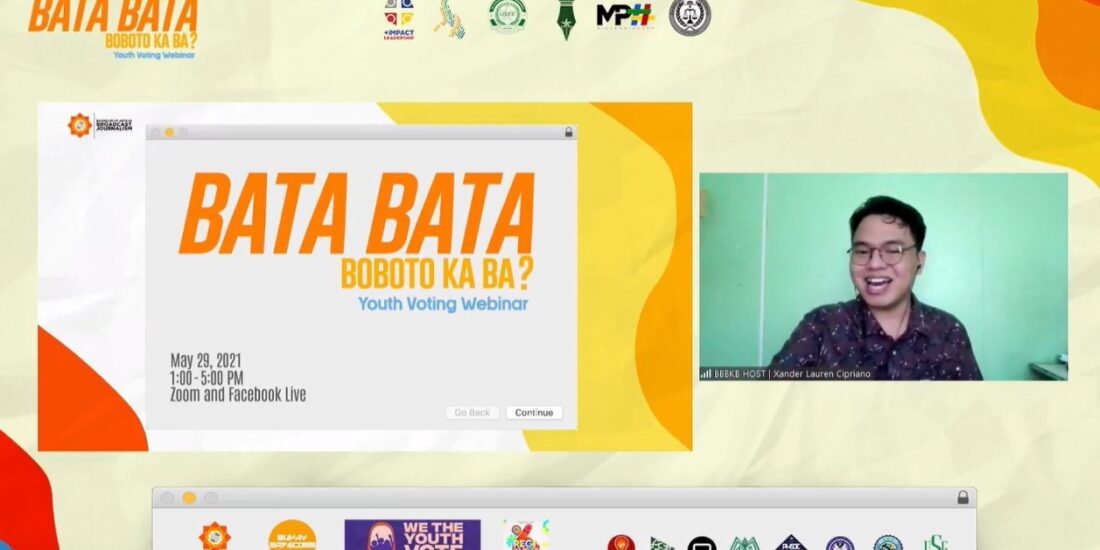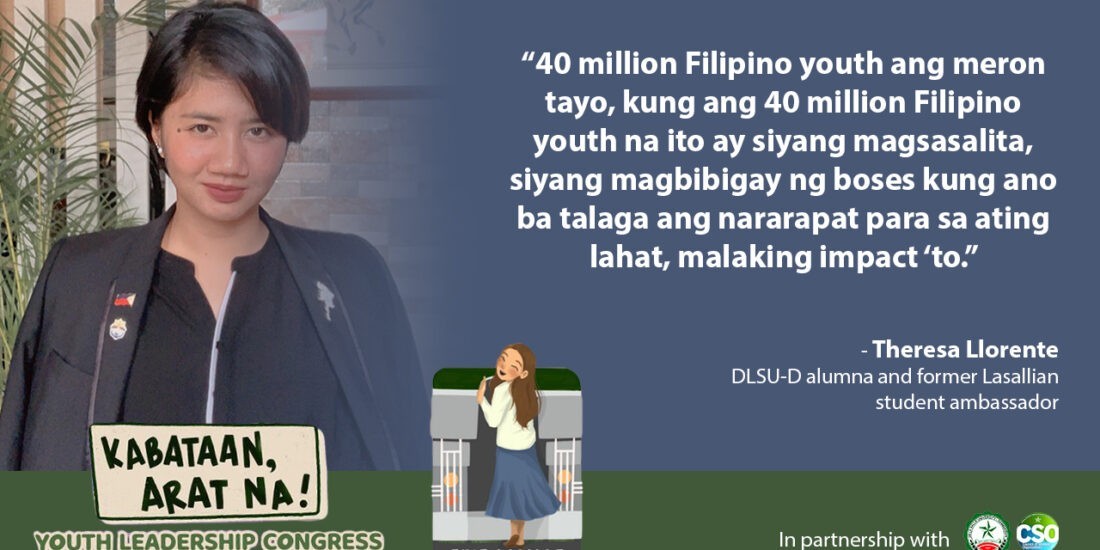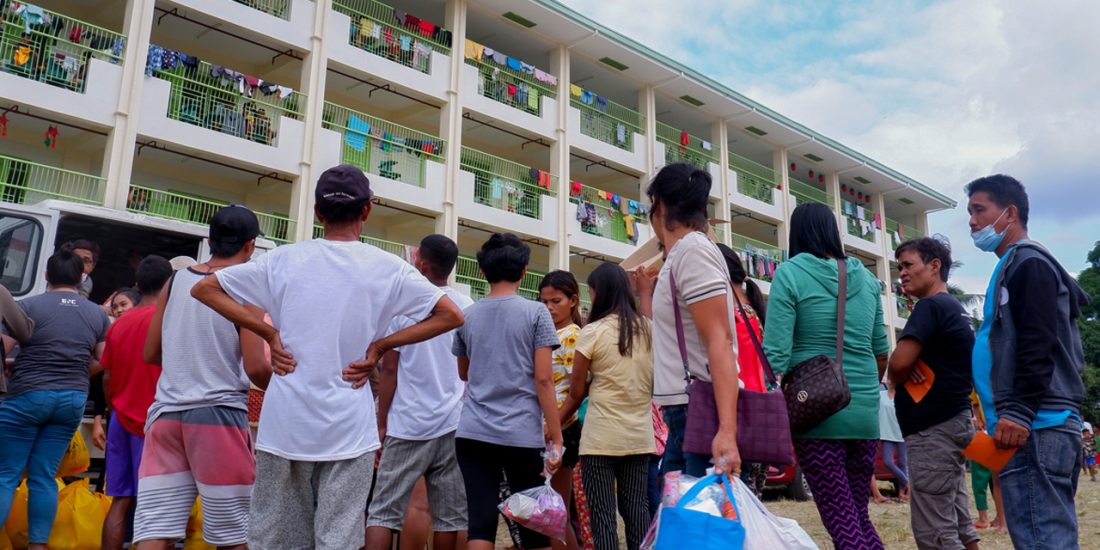Just like goods, Taal evacuees need emotional relief
Yellow elephants, pink turtles, and blue dogs with purple ears—children played to defy the conventional idea of nature with this activity, where they colored illustrations of animals with anything aside from their actual colors. Afterwards, they were asked the reasons behind these choices, and while some said they used their favorites, one child who colored his dog red shared that it’s supposed to be a hotdog.
This is the Child Friendly Spaces initiative done in some of the schools which served as evacuation centers in Alfonso, Cavite on January 18. This activity can be instrumental to healing, a fun and colorful attempt to pull them away from the aftermath of a calamity that painted their hometown gray.
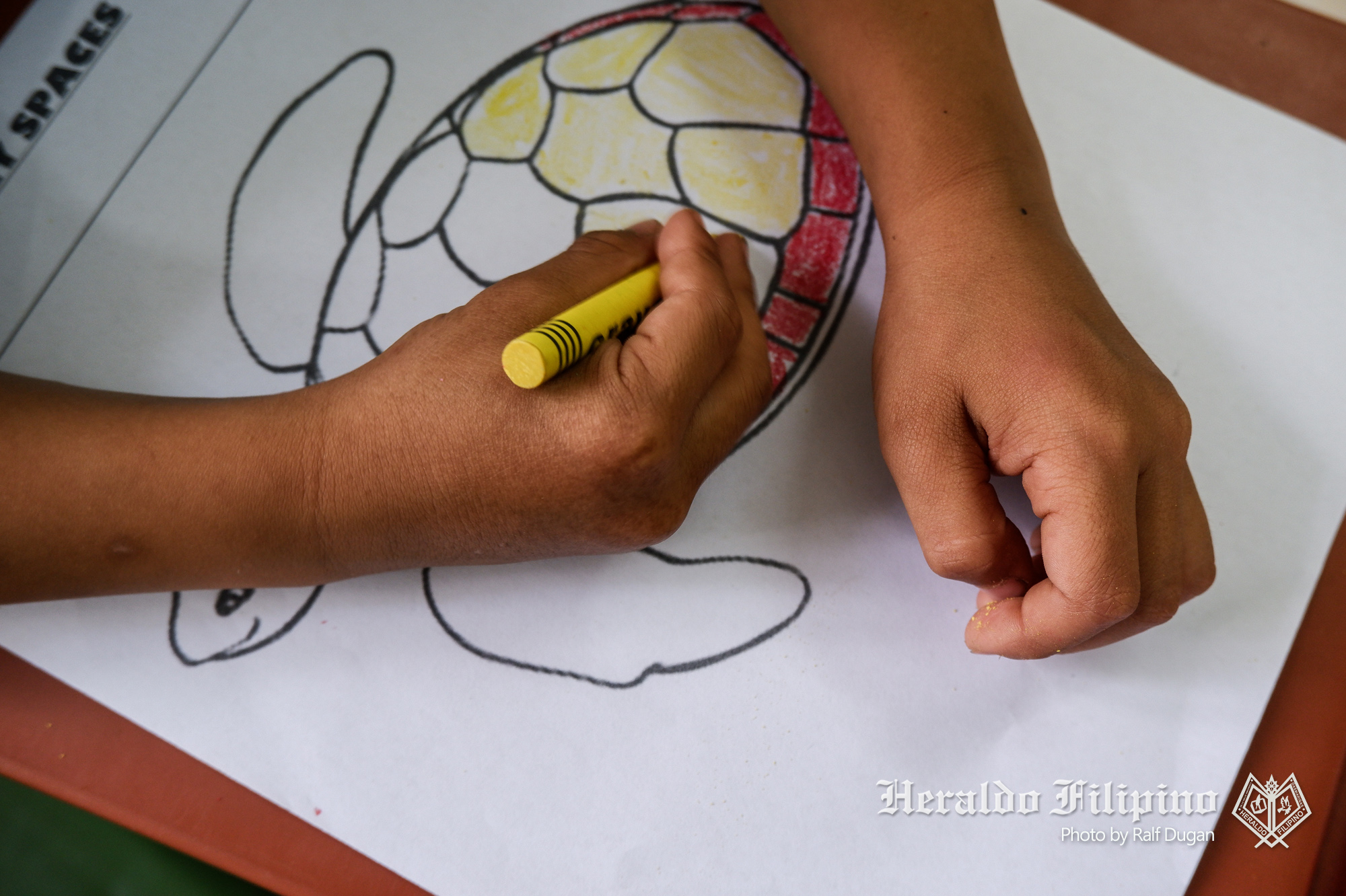
Led by DLSU-D graduate studies student Luis Ferolino, this simple activity which he consulted with psychiatrists is supposed to divert children’s attention to creativity and flush away trauma. Ferolino, who is also a volunteer himself, came to evacuation centers in Alfonso with a team of friends, DLSU-D students, and alumni to reach out to evacuees with simple help they hope to go a long way.
Children need careful attention
From leaving their homes, seeking shelter in cramped-up classrooms or covered courts, to lining up in donation drives—their struggles are as haunting as they are unthinkable, and all of which after witnessing the ground tremble and Taal Volcano erupt.
Children, most especially, are caught cluelessly distressed in the midst of this nightmare. And this type of event gives them the kind of thoughts they should be thinking much later in life. In Alfonso, some young evacuees asked volunteers if the school they temporarily stay in is free of tuition fee, thinking about continuing studies there instead.
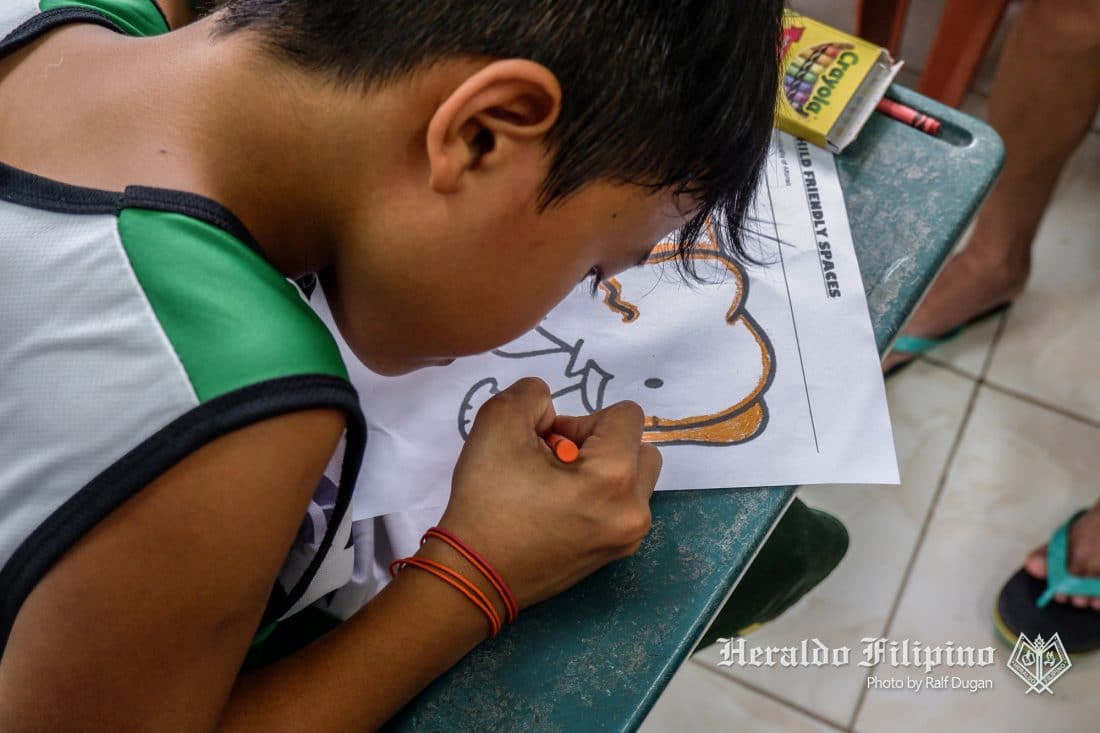
In times like this, what could children possibly be thinking about? On the evening of January 12, the Taal Volcano’s eruption consumed all posts on social media, and one in particular broke people’s hearts to see a family arrive at an evacuation center, covered in ash from head to toe, including children ages five to eight, with the look of confusion, and deep and unknown sadness that’s not necessarily unfamiliar to Filipinos.
Filipinos and disasters
As a country at high risk of different disasters, Filipinos are not new to calamities, and this molded citizens who are proud of their own resilience in the form of staying strong and laughing despite adversity. Likewise, bayanihan is etched in our culture, which is why people drove miles from different parts of the country and congested the Southern Luzon Expressway (SLEx) to offer help in Batangas and Cavite.
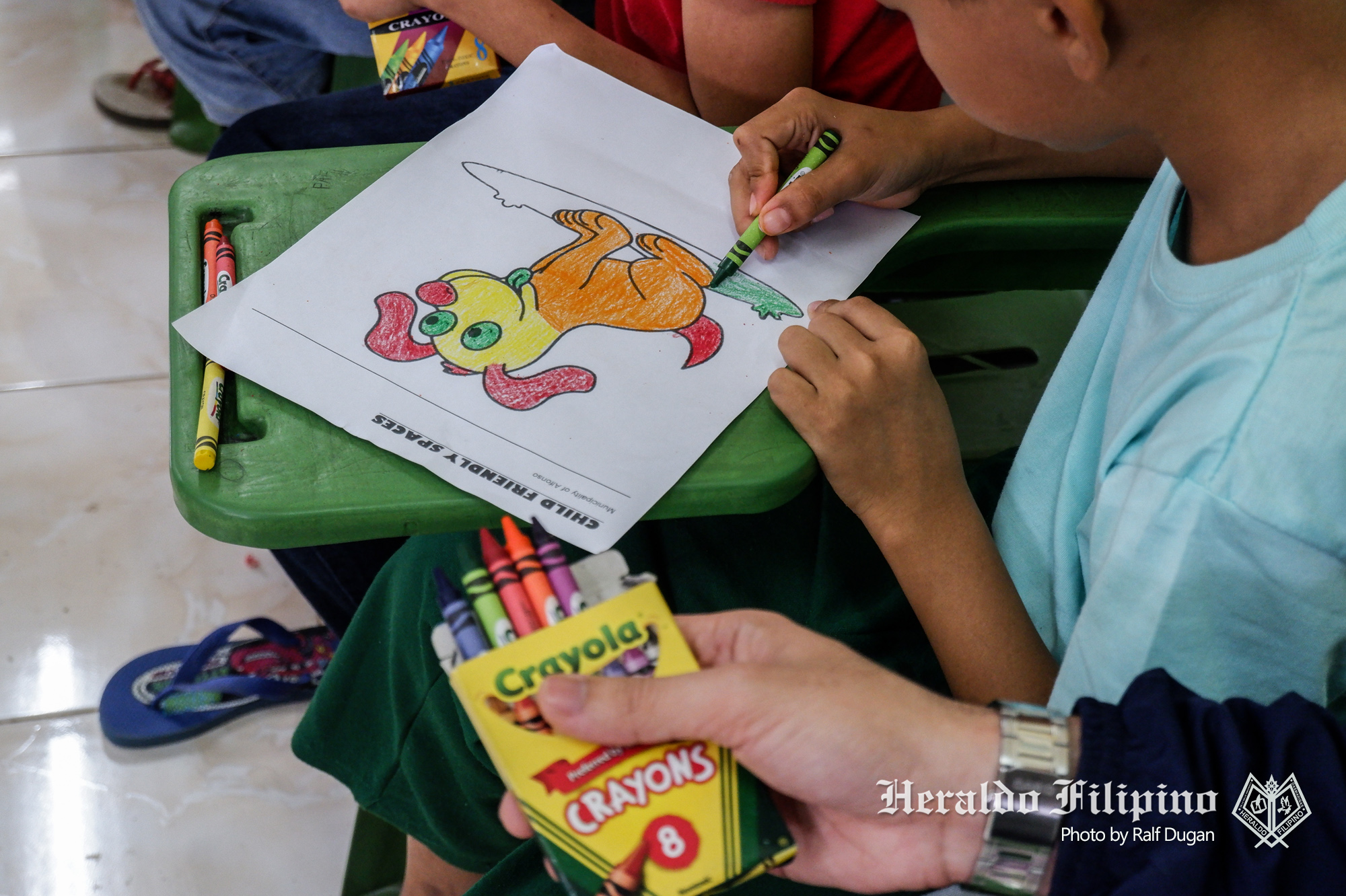
Evident enough, everyone knows the need for a monumental effort to help a community cope with massive loss, and these efforts most often come in kind and focus on physical health and basic needs like food, water, and clothing. Although humanity is at its best for attending to these needs, the rest realize the need to address the emotional impacts of disasters. Children and adolescents are emotionally vulnerable during these times, and these effects may manifest in the long run if not given attention.
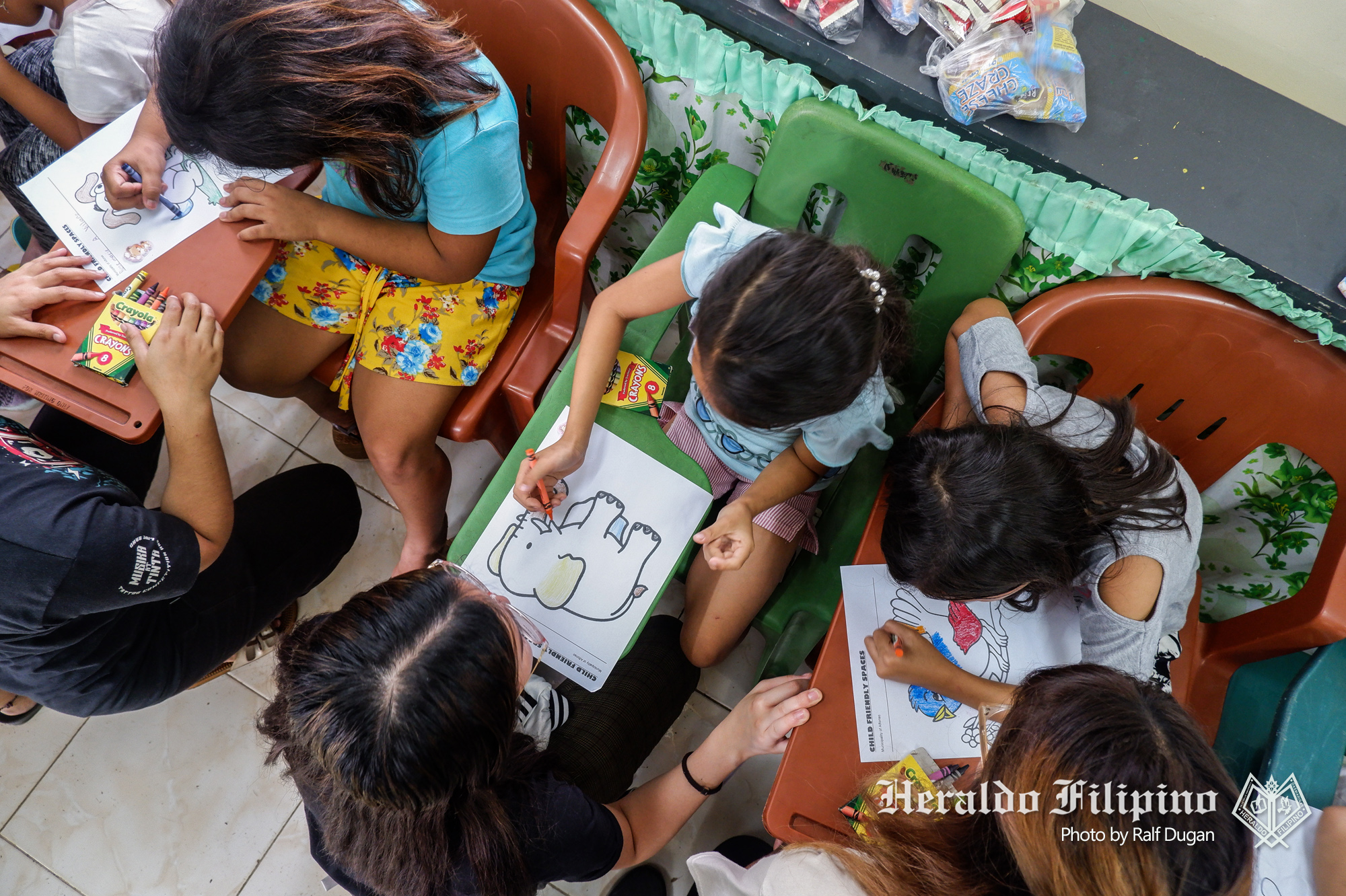
In his Facebook post about Child Friendly Spaces, Ferolino encouraged others to do the same, because while in-kind donations overflow, the evacuees also need emotional support. In the same evacuation center in Alfonso, mascots, and live musicians are in sight to entertain evacuees who could use a laugh or two.
But while entertainment is helpful, deeper intervention requires a careful procedure. The right time to intervene matters, and sometimes better if done by the right people. Luckily, this help is available too.
Psychological First Aid
The DLSU-D Center of Applied Psychology (DCAP) gathered around 400 volunteers for a Psychological First Aid (PFA) program.
Psychology Department Chair Evangeline Ruga said that the PFA serves as an immediate response after a disaster to give support for the adjustment of survivors with different impacts of trauma-inducing events.
This program was in coordination with the DLSU-D Student Wellness Center (SWC), De La Salle Medical and Health Sciences Institute, Cavite State University (CvSU), and University of Perpetual Help. Following orientations last January 18 and 21 to educate volunteers coming from a range of professionals in the field, they will be deployed around areas of Cavite and Batangas.
PFA allows the survivors to muster strength to heal and move past the calamity, as well as “to make survivors feel that they are not alone in times of distress,” Ruga explained. “To connect them to sources of support and to help them feel safe … in their environment again.”
With reports from Patricia Recaña



